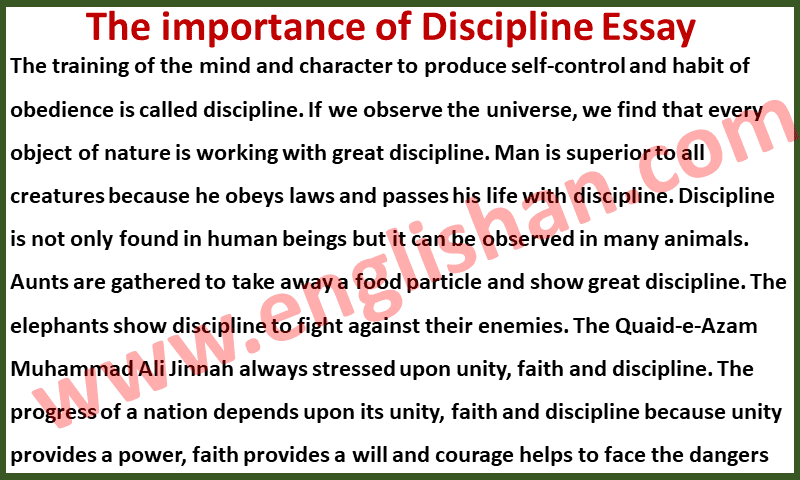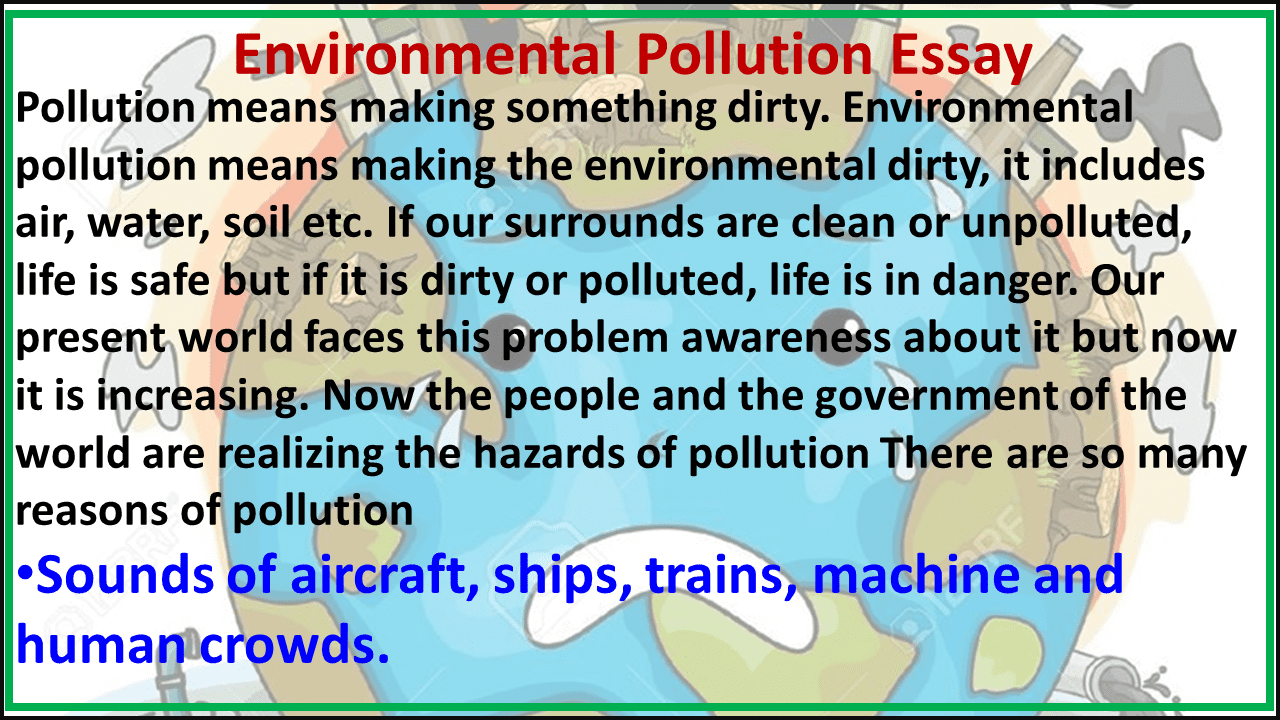Contents
This article presents a 500-word essay on Animal Testing, covering its role in scientific progress, ethical concerns, and emerging alternatives. It examines how animal testing has contributed to medical advancements while addressing debates on cruelty and ethics. The discussion also highlights modern research methods that reduce reliance on animal subjects. Students and educators can download free printable PDF and image formats for learning and reference. Understanding this topic fosters critical thinking about medical research and ethical responsibility. For more essays, visit our Essay Writing category here: Essay Writing.
The Role of Animal Testing in Scientific Research
Animal testing has contributed significantly to medical and scientific breakthroughs. It has played a vital role in developing vaccines, cancer treatments, and surgical procedures. Many life-saving medications, such as insulin and antibiotics, were first tested on animals. Scientists argue that because of their biological similarities to humans, animals provide crucial insights into human diseases. Despite these benefits, ethical concerns regarding the suffering of test subjects remain a critical point of discussion.
Ethical Concerns and Opposition
Critics argue that animal testing is inhumane, as many experiments cause suffering, pain, or death. Ethical concerns arise regarding the right of humans to use animals for scientific purposes. Activists advocate for cruelty-free research methods and emphasize that modern technology can replace the need for animal subjects. Laws and regulations, such as the Animal Welfare Act, aim to reduce suffering, but opponents argue that these measures are insufficient. The debate continues between prioritizing human health advancements and protecting animal rights.
Alternatives to Animal Testing
Advancements in technology have led to the development of ethical and effective alternatives. In-vitro testing, computer simulations, and organs-on-chips are promising methods that reduce reliance on animal subjects. These alternatives offer accurate and humane solutions while ensuring scientific progress. Several organizations and companies have adopted cruelty-free research, demonstrating that innovation and ethics can coexist.
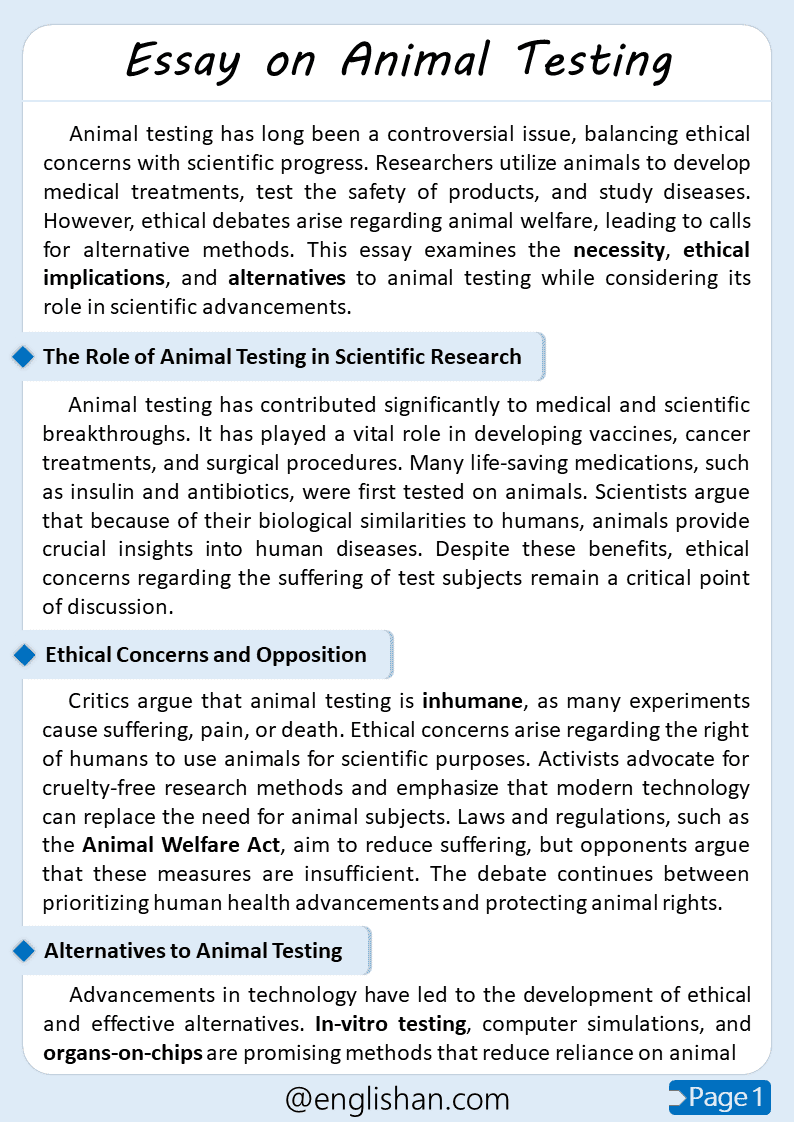
Regulations and Legal Frameworks
Different countries have varying laws regarding animal testing. While some nations have strict regulations to minimize animal suffering, others still allow extensive testing. Organizations such as the European Union have implemented bans on animal testing for cosmetics, setting a precedent for cruelty-free policies worldwide. The effectiveness of these laws remains a subject of debate as enforcement varies across regions.
Public Opinion and Advocacy
Public opinion plays a significant role in shaping animal testing policies. Many consumers and advocacy groups support cruelty-free products, pushing companies to adopt alternative methods. Social media campaigns and awareness initiatives have increased pressure on industries to reconsider their reliance on animal testing. The collective voice of consumers continues to drive change in ethical research practices.
Scientific Limitations of Animal Testing
Despite its contributions to medical advancements, animal testing has scientific limitations. Differences in physiology between animals and humans can lead to inaccurate results, making some experiments unreliable. Failed drug trials due to misleading animal test outcomes highlight the need for better research methodologies. Recognizing these limitations is crucial in transitioning toward more effective and humane alternatives.
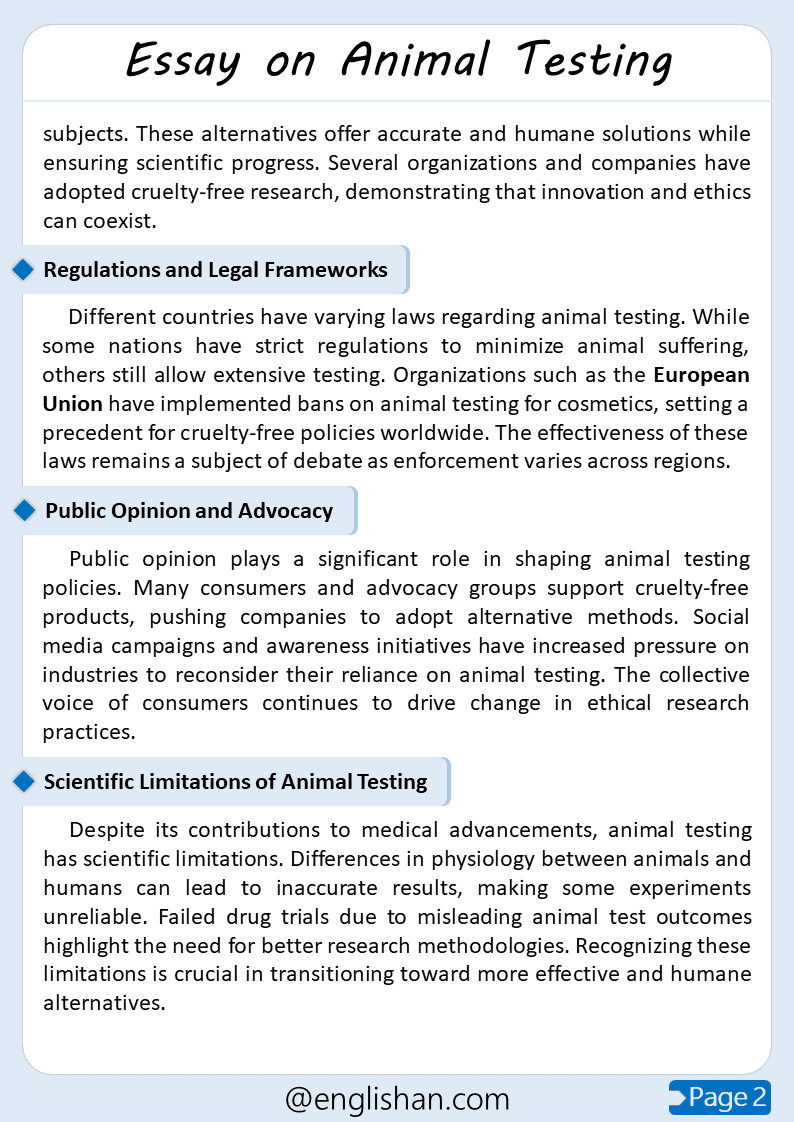
The Future of Animal Testing
With advancements in biotechnology and artificial intelligence, the future of animal testing is evolving. Scientists are exploring human cell cultures, 3D bioprinting, and AI-driven simulations as alternatives. The shift toward these technologies suggests that a future without animal testing may be possible, balancing scientific progress with ethical responsibility.
Conclusion
Animal testing remains a contentious yet pivotal aspect of scientific research. While it has facilitated significant medical breakthroughs, ethical concerns persist. The growing availability of alternative methods suggests a future where scientific progress continues without animal suffering. A balanced approach—considering both medical necessity and ethical responsibility—is essential for making informed decisions about the future of animal testing.
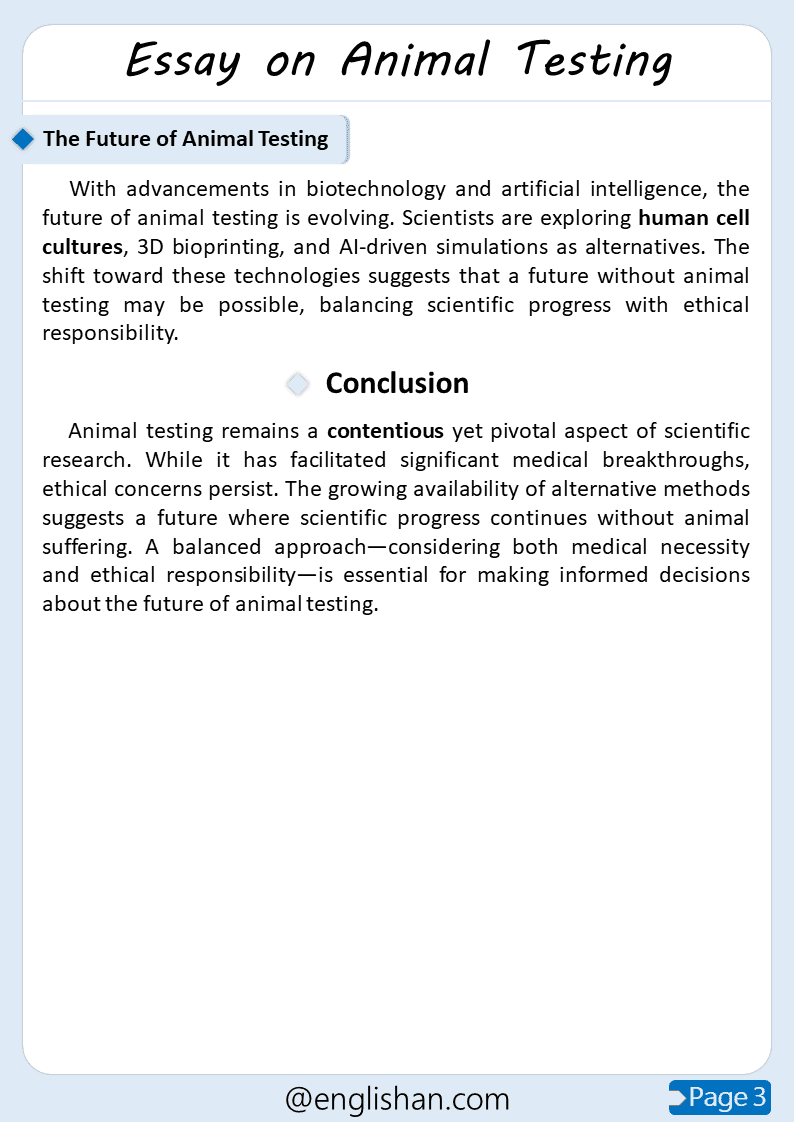
Difficult Words Used in Animal Testing Essay
| Word | Meaning |
|---|---|
| Necessity | The state of being required or essential |
| Ethical | Related to moral principles and right conduct |
| Implications | Possible effects or consequences |
| Inhumane | Lacking compassion or causing suffering |
| Welfare | The health and well-being of individuals |
| Contentious | Causing disagreement or debate |
Download PDF
You May Also Like
